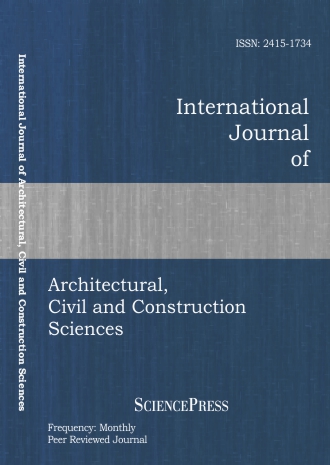
Scholarly
Volume:3, Issue: 1, 2009 Page No: 13 - 21
International Journal of Architectural, Civil and Construction Sciences
ISSN: 2415-1734
A Decision Support Tool for Evaluating Mobility Projects
Success is a European project that will implement several clean transport offers in three European cities and evaluate the environmental impacts. The goal of these measures is to improve urban mobility or the displacement of residents inside cities. For e.g. park and ride, electric vehicles, hybrid bus and bike sharing etc. A list of 28 criteria and 60 measures has been established for evaluation of these transport projects. The evaluation criteria can be grouped into: Transport, environment, social, economic and fuel consumption. This article proposes a decision support system based that encapsulates a hybrid approach based on fuzzy logic, multicriteria analysis and belief theory for the evaluation of impacts of urban mobility solutions. A web-based tool called DeSSIA (Decision Support System for Impacts Assessment) has been developed that treats complex data. The tool has several functionalities starting from data integration (import of data), evaluation of projects and finishes by graphical display of results. The tool development is based on the concept of MVC (Model, View, and Controller). The MVC is a conception model adapted to the creation of software's which impose separation between data, their treatment and presentation. Effort is laid on the ergonomic aspects of the application. It has codes compatible with the latest norms (XHTML, CSS) and has been validated by W3C (World Wide Web Consortium). The main ergonomic aspect focuses on the usability of the application, ease of learning and adoption. By the usage of technologies such as AJAX (XML and Java Script asynchrones), the application is more rapid and convivial. The positive points of our approach are that it treats heterogeneous data (qualitative, quantitative) from various information sources (human experts, survey, sensors, model etc.).